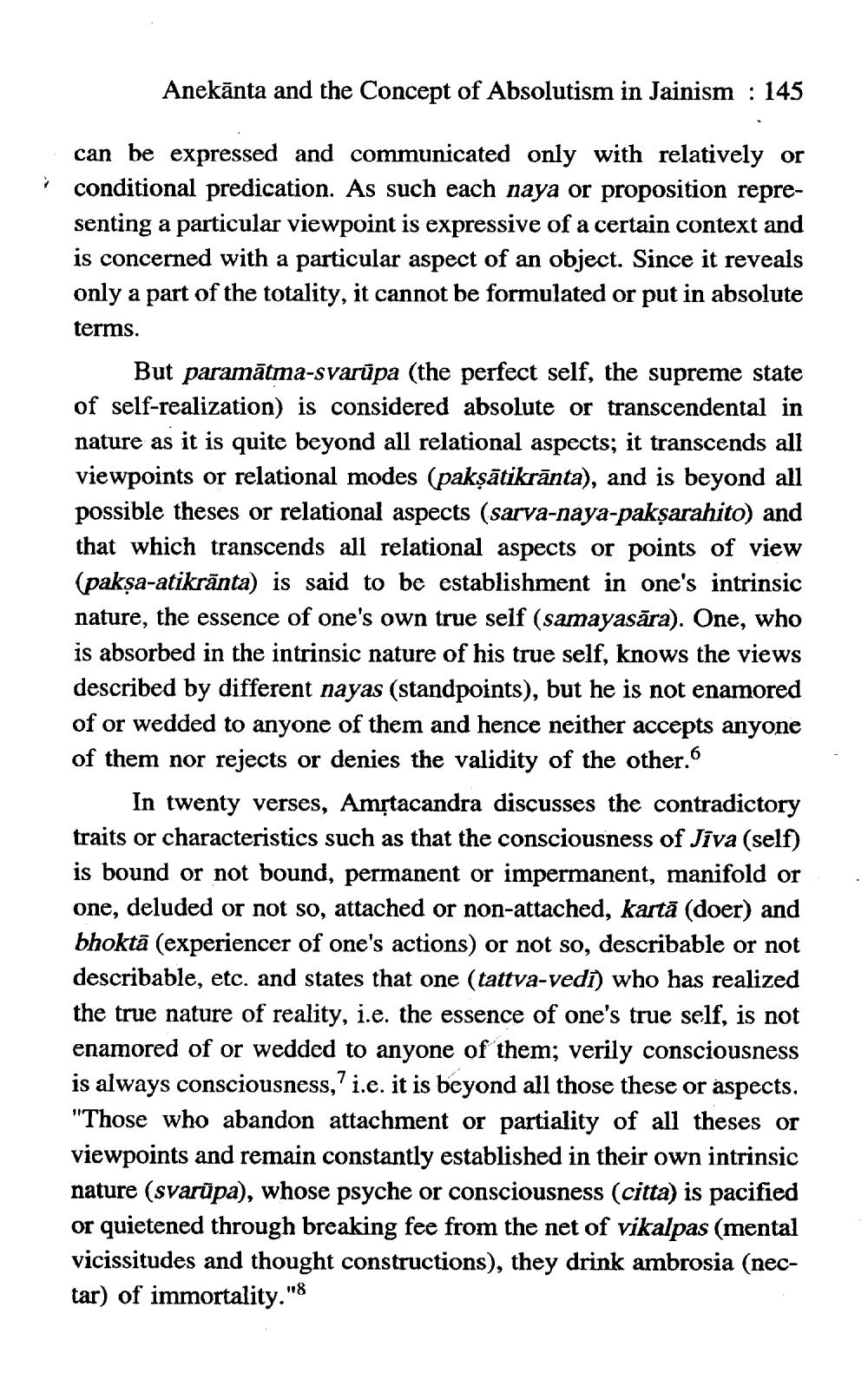________________
Anekānta and the Concept of Absolutism in Jainism : 145
can be expressed and communicated only with relatively or conditional predication. As such each naya or proposition representing a particular viewpoint is expressive of a certain context and is concerned with a particular aspect of an object. Since it reveals only a part of the totality, it cannot be formulated or put in absolute terms.
But paramātma-svarūpa (the perfect self, the supreme state of self-realization) is considered absolute or transcendental in nature as it is quite beyond all relational aspects; it transcends all viewpoints or relational modes (pakşātikrānta), and is beyond all possible theses or relational aspects (sarva-naya-pakşarahito) and that which transcends all relational aspects or points of view (pakşa-atikrānta) is said to be establishment in one's intrinsic nature, the essence of one's own true self (samayasāra). One, who is absorbed in the intrinsic nature of his true self, knows the views described by different nayas (standpoints), but he is not enamored of or wedded to anyone of them and hence neither accepts anyone of them nor rejects or denies the validity of the other.
In twenty verses, Amstacandra discusses the contradictory traits or characteristics such as that the consciousness of Jiva (self) is bound or not bound, permanent or impermanent, manifold or one, deluded or not so, attached or non-attached, kartā (doer) and bhoktā (experiencer of one's actions) or not so, describable or not describable, etc. and states that one (tattva-vedi) who has realized the true nature of reality, i.e. the essence of one's true self, is not enamored of or wedded to anyone of them; verily consciousness is always consciousness, i.e. it is beyond all those these or aspects. "Those who abandon attachment or partiality of all theses or viewpoints and remain constantly established in their own intrinsic nature (svarūpa), whose psyche or consciousness (citta) is pacified or quietened through breaking fee from the net of vikalpas (mental vicissitudes and thought constructions), they drink ambrosia (nectar) of immortality."8




